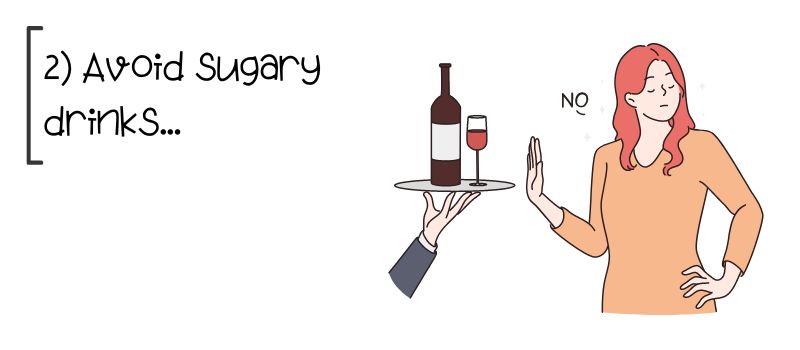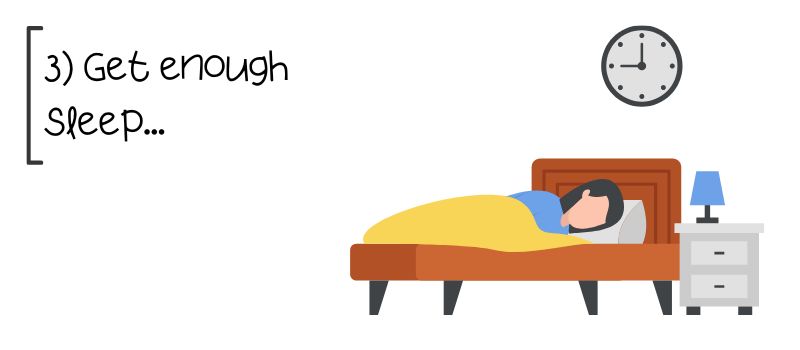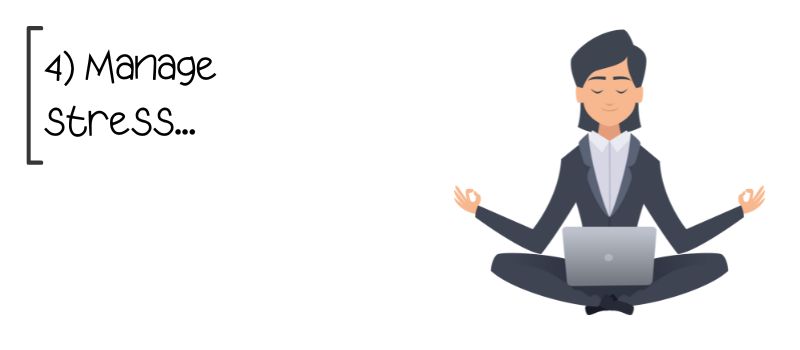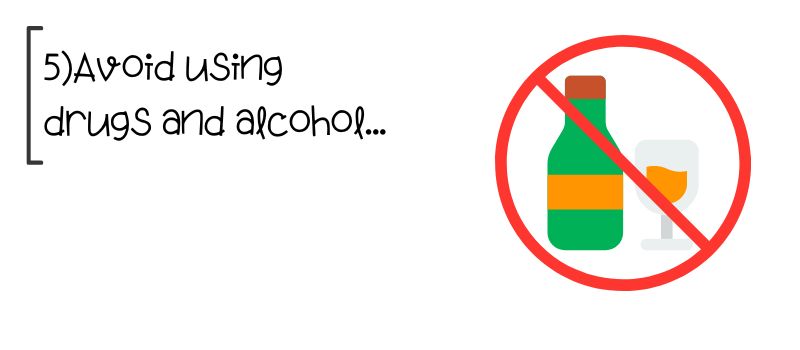Losing weight as a student can be challenging. With exams, papers, and socializing, it’s hard to find the time or motivation to focus on your health.
But, believe it or not, there are some easy ways to lose weight without sacrificing your academic success.
How to Lose Weight in College: The Ultimate Guide
Most students stay busy with their studies and don’t have time for physical activities that help burn calories. But they want to achieve their weight loss goals.
1) Cut down on processed and fast foods
This is one of the most important tips for losing weight for students. Processed and fast foods are loaded with unhealthy fats, salt, and sugar, leading to weight gain.

Instead, choose healthy snacks like fruits, vegetables, or whole-grain bread. They will help you lose weight and improve your overall health.
2) Avoid sugary drinks
As a student, staying energized and hydrated throughout the day is essential. However, sugary drinks can lead to a crash in energy levels.

That’s because the body releases insulin in response to the sugar, which causes blood sugar levels to drop. To avoid this, choose water or unsweetened tea instead.
3) Get enough sleep
Most people need around eight hours of sleep per night. But, students often sacrifice sleep to get good grades or spend more time socializing. Unfortunately, this can have serious consequences.

Lack of sleep can lead to weight gain and increased diabetes and heart disease risk. It can also impact mental health, leading to anxiety and depression.
In addition, students who don’t get enough sleep are more likely to experience problems with memory and concentration.
So next time you’re tempted to stay up late, remember that a good night’s sleep is essential for your health and well-being.
4) Manage stress
It’s crucial to manage stress levels, especially as a student. That’s because chronic stress can hurt your health.

Stress can cause insomnia, anxiety, and depression. It can also make it difficult to concentrate, which can impact grades. In addition, chronic stress can increase the risk of developing heart disease.
There are several ways to manage stress.
One is to exercise regularly, which can help relieve tension and improve mood.
Practice meditation or deep breathing exercises.
You might also want to try scheduling some relaxation time into your day, even if it’s just for a few minutes. This can be reading, listening to music, or spending time in nature.
Eat a healthy diet, which can help improve energy levels and mood. Don’t skip meals. Skipping meals is a bad idea for several reasons. It can lead to low blood sugar levels, which can cause fatigue and irritability.
5) Avoid using drugs and alcohol
Drugs and alcohol are wrong for anyone. We all know that, as they can lead to several problems.
For example, drinking can make concentrating difficult, negatively impacting grades. It can also cause dehydration, which can lead to headaches and fatigue.

Drinking can make it challenging to get a good night’s sleep. This can further impact energy levels and concentration.
Drugs and alcohol can also cause problems with mental health. For instance, they can worsen symptoms of anxiety and depression.
So it’s best to avoid using drugs and alcohol altogether. If you choose to drink, do so in moderation.
6) Drink lots of Clean water
Studies have shown that even mild dehydration can impact mood and energy levels.
So drink plenty of fresh water throughout the day. It will be going to help you a lot. Even If possible, bring a water bottle to class and refill it regularly. If you find it difficult to drink plain water, try adding some lemon or lime juice for flavor. It would help if you also avoided sugary drinks, as they can lead to a crash in energy levels.
7) Take breaks
You must take breaks when studying or working on a project. This will help to avoid burnout and keep your energy levels up.
Try to take a break every 20-30 minutes, even if it’s just for a few minutes. You can do something calming during your vacation, such as reading or listening to music.
You might also want to try getting up and moving around for a few minutes. Taking a walk outside can be especially helpful.
8) Get enough exercise
Exercise is essential for physical and mental health. It can help to improve mood, sleep, and concentration.
So exercise every day, even if it’s just a short walk around the block. If you have more time, you can try something more vigorous, such as running or biking.
9) Connect with others
It’s important to stay connected with friends and family, especially as a student. It can help to reduce stress and improve mood.
There are several ways to stay connected with others. You can talk on the phone, video chat, or send text messages.
In addition, you can try meeting up with friends in person. This can be especially helpful if you live far from home.
10) Seek professional help if needed
If you’re struggling to cope with stress, seek professional help. There are several resources available, such as counseling and therapy.
Counselors can help you learn healthy coping mechanisms. They can also provide support and guidance.
Therapy can be beneficial if you’re struggling with mental health issues like anxiety or depression. Therapists can help you understand and manage your symptoms.
There are several ways to find a counselor or therapist. You can ask your doctor for a recommendation or search online.
Final thought – Weight loss journey for Busy student
You don’t have to starve yourself or work out for hours a day to lose weight. Instead, you can lose weight simply by making good food choices and becoming more active.
I hope this post has been helpful. If you’re looking for more weight loss tips, check out my article on the best sleep aids to lose weight!








Leave a Reply